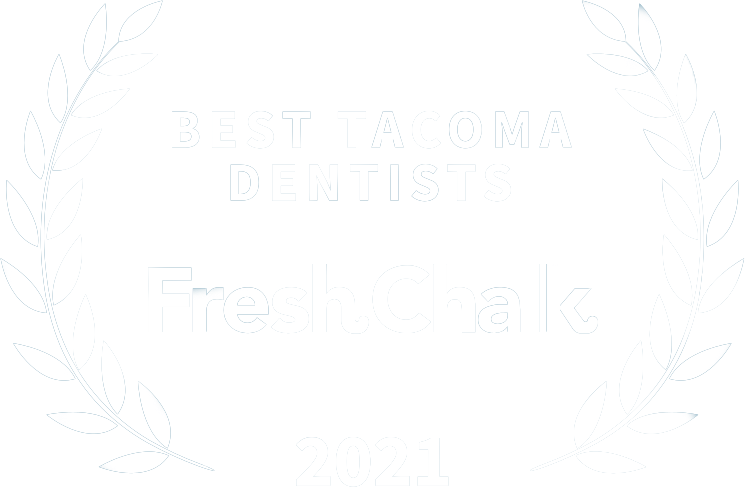What is the best teeth whitening option for you?
Having whiter teeth is something many people desire. With so many options available, it can be difficult to choose the best treatment. Over-the-counter choices, including toothpastes, gels, trays, and strips, are generally the cheapest and easiest, but they do not provide the dramatic results your dentist can achieve.
The degree of whiteness that treatments offer varies from person to person. It also depends on the level of staining, the condition of the teeth, and the product used.
Teeth whitening, however, is not recommended for everyone. The ideal patients are adults with healthy gums and teeth.
So, how do you know what is best and if teeth whitening is right for you?
Dr. de la Paz at Bright Smile Dental performs in-office whitening services and provides whitening products that are more effective than anything you can get over the counter. He would be honored to help you decide, based on your situation, which is best for you and your teeth.
How do teeth-whitening products work?
All toothpastes contain mild abrasives that help remove surface stains. Some whitening options also contain gentle chemical or polishing agents for more effective stain removal. However, toothpastes do not contain any bleaching agents, so they only remove surface stains.

Over-the-counter and dentist-supervised home whitening products contain a bleaching agent, usually hydrogen peroxide or carbamide peroxide. This lightens the color below the surface, usually by approximately one shade.
The biggest advantage of getting your whitening products from the dentist is that you also get a customized tray. This is a much better option than strips or a generic “one-size-fits-all” tray that can be messy and less effective.
The dentist makes your trays based on impressions of your teeth. He can also make sure it fits just right, so it doesn’t irritate your gums. Its perfect fit also means the bleaching agent is exactly where it needs to be and not on your gums, which can cause sensitivity and pain.
Prescription-strength whitening provided by your dentist in the dental office, however, can lighten your teeth up to eight shades.
The difference has to do with the strength of the bleaching agent. The products applied at home contain approximately 10-22 percent carbamide peroxide. This equates to roughly 3 percent hydrogen peroxide. In your dentist’s office, however, the hydrogen peroxide concentration can range from 15-43 percent.
What can I expect from in-office teeth whitening?
In-office treatment is much quicker and easier than any other option. Rather than having to wear strips or trays for hours each day for many weeks, in-office treatments offer immediate results. While most patients prefer several whitening appointments to achieve maximum results, noticeable results occur after just one treatment.
Before teeth whitening, you should have a professional dental examination and cleaning.
At your teeth-whitening appointment, the first thing your dentist will do is protect your gum tissue by applying either a gel or rubber shield. This is a huge benefit over do-it-yourself kits, which frequently damage or irritate gum tissue.
The whitening product is then applied directly to the teeth. A special light, heat, or a laser may also be used.
You can expect the procedure to take 30 minutes to an hour. When completed, you will see a dramatic difference in the shade of your teeth.
How long will the whitening effects last?
While teeth whitening is not permanent, there are things you can do to help your pearly whites stay white. Avoiding tobacco and drinks and food that stain teeth, such as coffee, dark-colored sodas, and wine, are a big help.
For those who continue with teeth-staining habits, the whiteness may begin to fade as early as one month after treatment. However, doing things to protect your teeth from staining should keep your teeth gleaming white for a year or longer.
Who should avoid teeth whitening?
At Bright Smile Dental, we always advise pregnant and nursing mothers to put teeth whitening treatment off.
Someone with numerous restorations, such as fillings, bridges, and crowns, may want to pass on teeth whitening. This is especially true if the restorations are in the front teeth. Restorations will not change color with teeth whitening products, and this can lead to uneven whitening. Dental bonding, crowns, or veneers may be a better option.
Patients under sixteen should not undergo teeth whitening treatment. This is because the pulp of the tooth, which contains nerves and blood vessels, is enlarged in children. Bleaching products can irritate the pulp or make it more sensitive.
Individuals with sensitive teeth may want to avoid teeth whitening, as bleaching products can increase sensitivity.
If you have gum disease or recession, talk with your dentist. You may be more likely to experience pain and sensitivity from the bleaching products. Also, exposed tooth roots do not contain enamel, so they will not whiten. This can cause unevenly colored teeth.
Any allergies to peroxide are a contraindication for products containing bleaching products.
If your teeth are highly discolored, especially if they have a black, blue, or gray hue, you may not notice much difference with teeth whitening products. You may prefer to consider veneers, bonding, or crowns. Discuss your options with your dentist.
If any of your teeth have cavities, these need treatment prior to teeth whitening.
Contact Bright Smile Dental Today
If you are looking for teeth whitening services, we have what you need at Bright Smile Dental , Call us today at (253) 475-0262 Or Schedule An Appointment Online.

